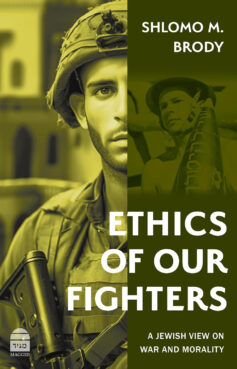(RNS) — “Yes, and how many deaths will it take ’til he knows, that too many people have died?” — Bob Dylan, “Blowing in the Wind.”
That is the question: Have too many people died in Gaza? What does that mean? How would we know?
More than that:
- There is “a time for war, and a time for peace” (Ecclesiastes 3: 7-8 — and also, “Turn! Turn! Turn!”). When is it a time for war and when is it a time for peace?
- Is it morally acceptable for Jews to demonstrate military power or is Jewish power only located in the world of the spirit?
- And, if Jews embrace power as a necessity in a dangerous world, how do they keep it from becoming a value in and of itself?
- What does it mean for a Jewish state to behave Jewishly?
- When Jews, as a group and as a nation, are attacked, how should they respond?
- When facing a threat, is it morally acceptable to hit first?
- How do we affirm that “Jewish blood is not cheap!” yet avoid wanton bloodshed when we respond?
- Most crucially: Is it ever acceptable to target non-combatants, even if “they” do so?
These are not mere philosophical questions for students of ethics to debate in lecture halls and over cups of coffee.

“Ethics of Our Fighters: A Jewish View on War and Morality” by Rabbi Shlomo Brody. (Courtesy image)
These are the questions that steal our sleep in the middle of the night. Jews imagine themselves to be a moral people, embracing a covenant with God — and yet, living in the real world, involved in the sullying work of statecraft and national security, and facing a pseudo-army with no uniforms, no boundaries and no morals.
All of these questions have pushed me into my latest literary obsession — “Ethics of Our Fighters: A Jewish View on War and Morality,” by Rabbi Shlomo Brody.
I cannot put this book down. It is a tour de force, in the truest sense — a journey through Jewish views of statecraft, Zionism, just war theory, pacifism and its discontents — all emerging from a brilliant Jewish mind who really puts it all together.
And, it is not just about the Jewish experience. It is also about Pearl Harbor and the bombing of Dresden and about Vietnam and the nuclear attacks on Hiroshima, Nagasaki.
Brody wonders aloud: Was Jewish nationalism a “given?” Were there traditional Jewish arguments against it?
He brings us into conversation with Rabbi Abraham Isaac Kook, first chief rabbi of pre-state Palestine, who understood the need for Jewish nationalism but also understood that it could descend into ethnic chauvinism:
Nationalist feeling is a sentiment exalted in its honest naturalness, but when it is not properly directed and does not turn to the higher goal of the absolute happiness of general perfection, it will eventually burst the bounds of morality when it oversteps its boundaries by raising a hand to capture castles that do not belong to it, without righteous judgment and with no holy goal or purpose.
Kook worried about the potential Jewish return to sovereignty:
We left the world of politics by force of circumstance that (nevertheless) contains an inner desire, until a fortunate time will come, when it will be possible to conduct a nation without wickedness and barbarism — this is the time we hope for … It is not worthwhile for Jacob to engage in statecraft when it must be full of blood, when it requires an ability for wickedness.
What would be the antidote to a nationalism that devours the soul? The sacred idea that all human beings are created in the Divine Image.
So, yes: nationalism and a critique of nationalism.
Yes, pacifism and a critique of pacifism. There is an amazing passage in which Rabbi Brody reminds us of the exchange between Mahatma Gandhi and Zionist leaders in 1938-1939. They requested his support for a Jewish state as a way of protecting Jews against the coming onslaught.
They did not like Gandhi’s response: “If there ever could be a justifiable war in the name of and for humanity, a war against Germany, to prevent the wanton persecution of a whole race, would be completely justified. But I do not believe in any war.”
Brody writes:
What then should the Jews do? Gandhi suggested that each of his correspondents stand tall and practice civil disobedience, challenging his German persecutors to “shoot me or cast me in the dungeon.” As for the Jews in Palestine, they should try to convert the Arab heart through passive nonviolent resistance (satyagraha, in Gandhi’s coinage) and “offer themselves to be shot or thrown into the Dead Sea without raising a little finger against (the Arabs).”
To which the Jewish thinker, Martin Buber, who was himself a peace activist, responded:
I cannot help withstanding evil when I see that it is about to destroy the good. I am forced to withstand the evil in the world just as the evil within myself. I can only strive not to have to do so by force. I do not want force. But if there is no other way of preventing the evil destroying the good, I trust I shall use force and give myself up into God’s hands.
Buber was right. Pacifism allows — no, invites — the strong to defeat the good.
As I have said, this is a deeply rich and powerful work. It is perhaps the best book on Jewish ethics that I have read in years. Rabbi Brody takes us on a whirlwind tour of modern Jewish history through pogroms and their responses, to the Holocaust, Zionist thinking, the years that led to the creation of the state, the encounter with Jewish militancy, the debate over self-defense and aggression. All of which leads us, inexorably, to the present moment in Gaza.
Let me put it sharply: While Rabbi Brody wrote this book before Oct. 7, he could not have known it was intended for the world after Oct. 7.
I close with the favorite joke of the late pundit, Leonard (Leibel) Fein, which Rabbi Brody might have loved.
It is the story of the Jews in pre-Revolutionary Russia, who are hanging out and drinking with some gentile friends.
One of the Jews asks his friends: “What do you really think of us Jews?”
The Russian answers: “We like you very much, but to be honest, sometimes we find you a little pretentious and pompous.”
“Really? Why?”
“Well, you think you’re so morally superior.”
“Well, we are. For example, you gentiles hunt. We Jews don’t hunt. It is as simple as that.”
To which the now-drunk Russian responds: “Of course you Jews don’t hunt! We gentiles don’t let you own guns!”
Leibel would laugh as he would tell that joke (perhaps he invented it himself), and then he would add: “And at that moment, those Jews resolved that when they would go to the land of Israel, and create a state, that while they might have to own guns, they would not hunt.”
But, we live in a world of Dylan’s imagining:
“How many times can a man turn his head, and pretend that he just doesn’t see?”
Let’s all learn to see better.
Share a conversation with Rabbi Shlomo Brody this coming Sunday, Feb. 25, 3 p.m. – 4:40 p.m. “Acting Ethically in the Face of an Immoral Enemy,” is the second conversation for Wisdom Without Walls: an online salon for Jewish ideas, which brings Jews and thought leaders together for conversations about Judaism, post-Oct. 7. Register here. We cannot wait to see you.






